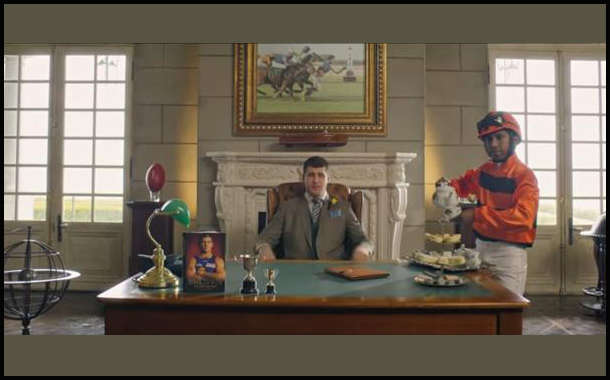An Australia advert for a betting company discriminated against Indians in the way it depicted the relationship between a former sports star and an Indian jockey, the country’s ad standards board has ruled.
The ad for Ubet, which featured former Australian Rules star Jonathan Brown, drew complaints in Australia for its portrayal of 19th Century British colonial rule.
The online ad features Brown in a country house, labeled ‘Brownton Abbey’. In the ad, the unnamed jockey works as his manservant, serving tea and acting as a a prop to an archery target.
One complaint said: “The ad features racist imagery. It deliberately uses imagery of British colonialism and the subjugation of Indian people. Core to my complaint is that Jonathan Brown is followed around by a man of Indian descent who is dressed as a jockey and acting as his servant. Further, in several scenes he shows complete disregard for the safety of his employee (slave?) conveying an attitude that this person is not of the same worth as him.”
Ubet defended the ad, telling the ASB that the ad was intended to be “humorous” and that the comparison to The Raj was “in the complainant’s mind”.
It argued the jockey had been cast because the actor needed to be short, rather than on his race, Ubet said.
Ubet also argued that the fact that the jockey could be seen playing Pokèmon Go in one scene demonstrated the ad was not set in colonial times. It said: “Any parallels drawn between that setting and racist depictions of Indians are purely circumstantial.”
However, despite the ASB board being split on the decision, it ruled against Ubet.
It said: “The advertisement is styled to look like Downton Abbey, and Browny is waited upon by a dark-skinned jockey.
“The Board noted the element of humor in the advertisement and the British colonial theme to the advertisement. The Board noted that the advertisement does clearly suggest that the jockey character is a servant and considered that in the historical context the race of the jockey does reflect historical servitude and colonialism.
“The Board considered the advertisement was a depiction of British colonialism and considered the use of a jockey who appeared of Indian descent may be reflective of history.”
“The minority of the Board felt that this reflection of history was showing that times have changed and that this behavior is no longer acceptable.
A minority of the Board considered that the race of the jockey was not relevant to the advertisement, and that the subservient nature of the jockey was reflective of the royal theme and that the advertisement did not suggest that the jockey was discriminated against or vilified because of his race.
“The majority of the Board considered that there was no clear message in the advertisement that this behavior is unacceptable and that the treatment of the jockey in the advertisement was unfair and unequal.”
Ubet said that although it did not agree with the ruling, it had removed the ad from its YouTube account and social channels.
While the ad is no longer available, the 2015 version of the campaign, which also features both Brown and the jockey, is still online. Ubet’s creative agency of record in Australia is The Monkeys.

















